Aloe Vera For Rash: Benefits And How To Use
Effective ways to capitalize on the skincare benefits of this medicinal plant
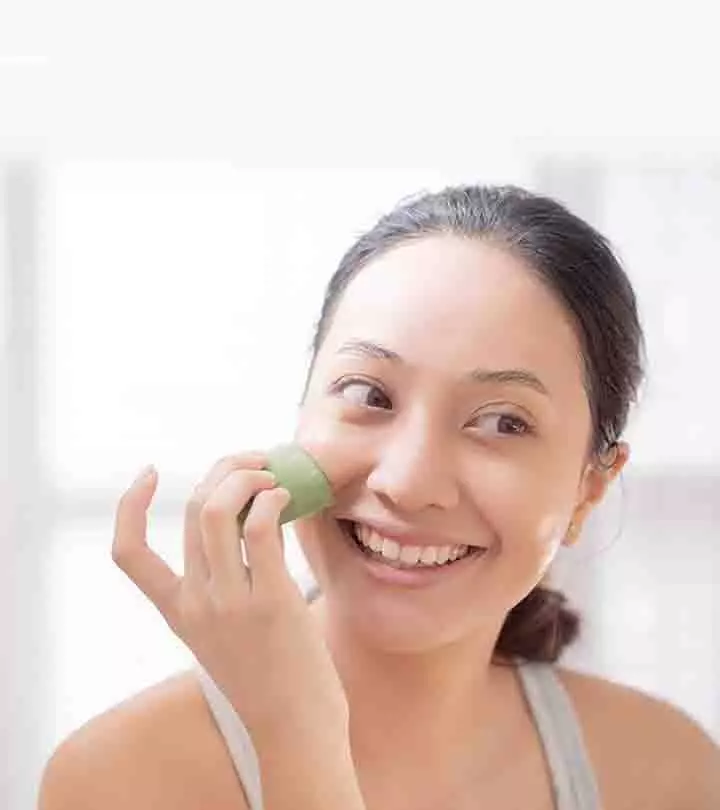
Image: ShutterStock
Aloe vera, the short-stemmed and thick plant, has several skin care benefits. Many use aloe vera for rash treatments and other skin ailments. The presence of beneficial nutrients, enzymes, and vitamins in aloe vera helps your skin heal from the inflammation and itch caused by the rash.
You can use aloe vera to relieve itchy rashes. This article will help you know more about the benefits of aloe vera and how it may treat and soothe rashes. Keep reading.
 Did You Know?
Did You Know?In This Article
Why Is Aloe Vera So Effective On The Skin?
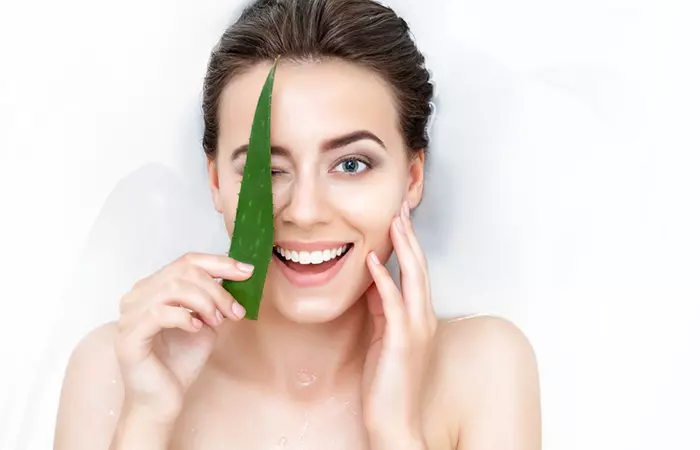
Aloe vera is good for treating a rash as it has anti-inflammatory properties. Thus, it helps reduce the redness and irritation caused by the rash. Its moisturizing properties also soothe the rash and have a cooling effect on it. Tracie Dang, a YouTuber, shares her experience with a recent hives breakout, attributing it to her highly sensitive skin and allergies. She says, “It’s very calming! Ah, it’s so great for itch relief because you feel this also like this cooling sensation on your skin as well that is just so beneficial and I just love it (i).”
It is one of the best natural remedies for skin irritation due to the presence of a soothing gel known for its healing properties. This makes it a commonly used ingredient in herbal medicine.
Aloe vera is also considered to be very effective for various other skin ailments like dermatitis and sunburn. But, what makes it so effective? Research indicates that this is due to a variety of compounds and micronutrients present in it. These include:
 Trivia
Trivia1. Antioxidants
Free radicals can cause wrinkles, fine lines, and other related issues. The antioxidants present in aloe vera help fight these free radicals and protect your skin from such age-related damage. Therefore, it helps your skin retain its elasticity and evenness.
2. Enzymes
The enzymes present in aloe vera are responsible for getting rid of the dead skin.
Keratin holds together the dead skin on your face, and the enzymes help break down this keratin which, in turn, leaves your skin looking fresh and youthful.
3. Vitamin A
Vitamin A helps in the skin’s recovery
after any damage (such as minor cuts and wounds) and increases the skin’s immune response. As a result, your skin is less likely to develop acne or rashes. Vitamin A also helps increase cell production – which means that new skin cells rapidly replace the dead skin.
4. Vitamin C
Vitamin C’s primary function is to maintain an even skin tone. Problems like hyperpigmentationi A harmless skin condition where you develop dark patches on the skin due to excess melanin production. , tanning, and brown spotting can affect the skin on your face. With vitamin C, you can look forward to an even skin tone, as well as protection from UV rays, which harm your skin and cause sun damage.
Now that you know how aloe vera works to improve your skin, let’s check out how you can use it to treat a rash.
Key Takeaways
- The moisturizing properties of aloe vera can soothe rashes and have a cooling effect.
- Excess use of aloe vera can lead to drying of the skin.
- When used with diabetes medications, oral aloe gel may raise the risk of unusually low blood sugar levels.
How To Use Aloe Vera For Rashes

Using aloe vera for rashes is quite straightforward. While over-the-counter creams containing aloe vera are an excellent option, you should ideally apply fresh aloe vera gel to your skin if it is not dry. Here are some simple application steps that you can refer to:
- Extract aloe vera gel from the plant by cutting open a leaf and scooping it out with a spoon.
- Directly apply a spoonful of the fresh aloe vera gel to the affected area.
- Then, wait for it to dry for 5-6 minutes before continuing your day as usual.
- Apply the gel twice a day for the best results.
- You can also apply it more often if the rash is severe.
- In case of dry skin, use a moisturizing cream or virgin coconut oil after each application.
When To See A Doctor
If your skin starts itching, burning, or hurting more, or the redness increases after applying aloe vera gel, it is an indication that it does not suit your skin and that you need to stop using it immediately. Wash it off immediately and consult a doctor. You may need a stronger medication to treat the rash.
It is also usually recommended that you do not start consuming aloe gel or latex without the advice of a doctor.
Find out how aloe vera can make your skin worse in the next section.
Can Aloe Vera Make Your Skin Worse?
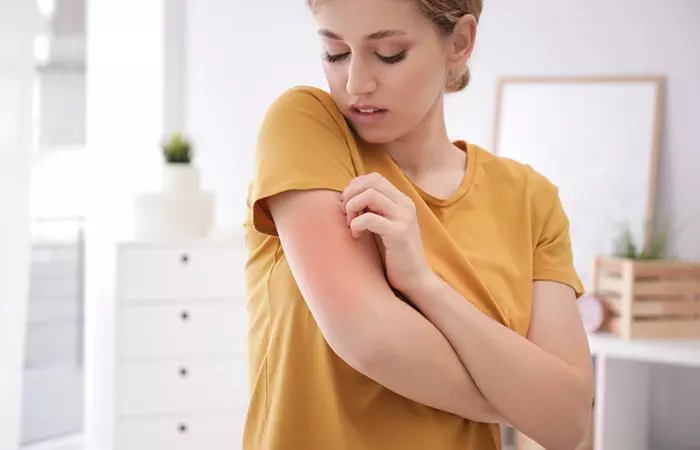
Usually, aloe vera is very good for the skin. There is already a lot of evidence and research to support this claim. However, there are some reasons why aloe vera might not work for your skin. Here are some of them:
Allergies
It is possible that you might be allergic to aloe vera. It can cause hivesi Itchy, raised, and splotchy areas of skin that are triggered by foods, certain medications, and stress. and rashes in such cases. Therefore, it is recommended that before you start using aloe vera, you do a patch test on a small part of the skin to ensure that there are no adverse reactions.
Dry Skin
Excess use of aloe vera is discouraged by dermatologists. This is because it can lead to drying of the skin due to its mild astringenti The property that helps draw water out from skin’s tissues, causing them to shrink and dry up secretions. property. In addition, even when consumed orally, you can risk dehydration due to its laxative effects.
Acne
Aloe vera might interrupt the liver’s functioning if consumed in excess, which stops the liver from detoxifying the body. This, in turn, will increase the toxic content in the body and give rise to acne on your face. However, this is a risk only if you consume aloe vera orally.
Learn about the effect of aloe vera on eczema in the next section.
Does Drinking Aloe Juice Help With Eczema?
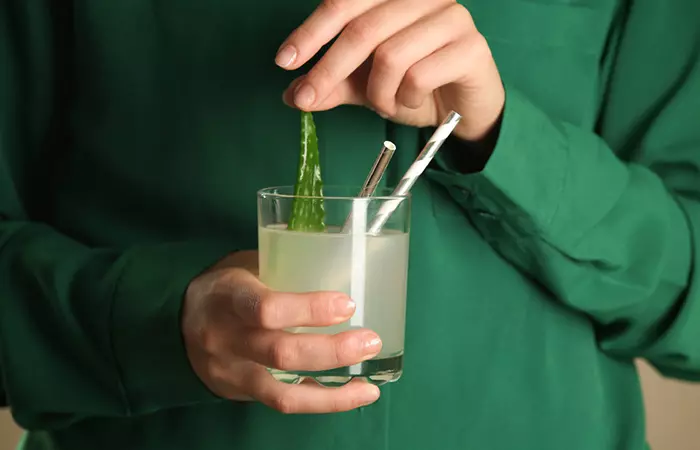
Eczema is a skin condition that causes the skin to become itchy and inflamed. This condition can occur anywhere on the body, though it is most regularly found on the feet, close to the armpits, and occasionally on the hands. According to the National Eczema Association, you can use aloe vera to manage eczema.
However, directly applying aloe vera to the skin is more effective than drinking aloe juice. The topical application of aloe vera works better because it directly interacts with the affected area.
Applying aloe vera to the skin helps reduce inflammation. Its antibacterial properties also inhibit subsequent infection caused by scratching eczema-ridden skin.
Therefore, while drinking aloe juice might not be the best option to deal with eczema, there are definitely medical benefits of directly treating eczema with aloe gel.
Now, let’s answer an important question.
Does Aloe Vera Stop Itching?
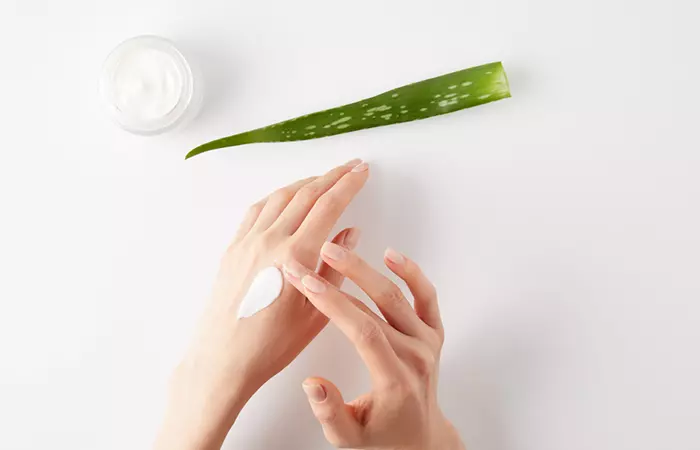
The short answer is, yes, it does. Its moisturizing property and cool gel texture can soothe itching. However, in case of excessively dry skin, it is recommended to mix aloe juice or gel with some moisturizing products and use it to avoid aggravating the itching.
It has also been found to be an effective treatment for scabies, a skin condition that is characterized by itching.
However, inflammation and itching are just symptoms of an underlying condition. Aloe vera can temporarily take care of the problem when applied to the skin until you consult a medical professional. You can also use it in combination with other oils and home remedies to take care of itching and inflammation.
Find out if aloe vera causes any side effects in the next section.
Side Effects And Risks
Aloe vera plant has two components. The first is the clear gel, which is widely used. The second component is aloe latex, which is yellow and taken orally. Though the clear gel is generally safe, the aloe latex can present problems if not consumed correctly.
You should not consume certain other medicines and substances with aloe latex. Doing so can either lead to serious health problems or aggravate the ones already present. Here are some of the medications that aloe latex does not mix well with:
Anticoagulants
The primary role of anticoagulants is to increase blood flow. However, consuming aloe latex will slow down the blood flow and increase blood clotting. Therefore, you should not consume them within the same time frame.
Diabetes Medicine
When used with diabetes medications, oral aloe gel may raise the risk of unusually low blood sugar levels (hypoglycemia).
Diuretics
Aloe latex is a natural laxative. However, when consumed with diuretics, it can decrease the level of potassium in your body and cause a deficiency.
Other Oral Drugs
In general, it is not considered a good idea to consume aloe vera (whether the gel or the latex) as it can reduce the effectiveness of other medicines. In addition, depending on the components of the drugs, it might cause some accidental reactions.
Oral consumption of aloe latex or whole-leaf extract might be dangerous, especially in large dosages. Taking one gram of aloe latex a day for several days might result in severe renal failure and death. Aloe latex also has the potential to cause cancer. Abdominal pains and diarrhea are two more common adverse effects. Therefore, children under ten should not consume aloe latex or whole-leaf extract.
Infographic: Skin Benefits Of Aloe Vera And Possible Risks
Aloe vera is considered a wonder herb and rightly so. It has a lot of skin and hair benefits. However, every coin has two sides, and aloe vera has some risks and side effects too that you must consider before consuming or applying it. Check out the infographic below for more information.

Illustration: StyleCraze Design Team
Aloe vera is a remarkable plant that is well-known for its skin benefits. For centuries, it has been used as a natural remedy for rashes. It can help to relieve the itching and irritation that a rash causes. If you have a rash that has been bothering you for a while, feel free to try aloe vera gel. Just do a patch test first before applying it to your rash. Keep in mind that the results may differ, and your symptoms may persist. Consult a healthcare expert if you have any questions or concerns regarding your rash.
Frequently Asked Questions
How do I know a rash is healing?
Rashes heal on their own within a few weeks. Usually, a rash is healing if the itching and redness subside.
How do I know if my rash is fungal or bacterial?
Usually, rashes are caused by a fungal infection. The first signs of bacterial skin infection are small, red bumps that slowly grow bigger, while fungal skin infection develops as itchy and scaly rashes.
What do stress rashes look like?
Stress rashes are characterized by red raised bumps that cluster into tiny dots. They can manifest anywhere on the body, including the arms, legs, back, and the face.
Can anxiety give you a rash?
Possibly. According to anecdotal evidence, anxiety may cause your body to release histamine, leading to hivesi Itchy, raised, and splotchy areas of skin that are triggered by foods, certain medications, and stress. or rashes.
Say goodbye to skin rashes with our soothing remedy! Explore the healing properties of aloe vera and jojoba oil in this video guide to find relief and restore your skin’s health.
Personal Experience: Source
StyleCraze's articles are interwoven with authentic personal narratives that provide depth and resonance to our content. Below are the sources of the personal accounts referenced in this article.
i. Aloe Vera Gel for Skin Rasheshttps://www.youtube.com/watch?v=wgX4wSIL4M4
References
Articles on StyleCraze are backed by verified information from peer-reviewed and academic research papers, reputed organizations, research institutions, and medical associations to ensure accuracy and relevance. Read our editorial policy to learn more.
- Aloe Vera: A Short Review
https://www.ncbi.nlm.nih.gov/pmc/articles/PMC2763764/ - Aloe-Mayo Clinic
https://www.mayoclinic.org/drugs-supplements-aloe/art-20362267 - The Effect of Aloe Vera Clinical Trials on Prevention and Healing of Skin Wound: A Systematic Review
https://www.ncbi.nlm.nih.gov/pmc/articles/PMC6330525/ - 10 inexpensive ways I manage my eczema
https://nationaleczema.org/blog/inexpensive-eczema-tips/ - Preliminary study of the effectiveness of aloe vera in scabies treatment
https://onlinelibrary.wiley.com/doi/abs/10.1002/ptr.2614 - Aloe vera: A review of toxicity and adverse clinical effects
https://www.ncbi.nlm.nih.gov/pmc/articles/PMC6349368/
Read full bio of Dr. Archna Agrawal
Read full bio of Arshiya Syeda
Read full bio of Ramona Sinha
Read full bio of Swathi E





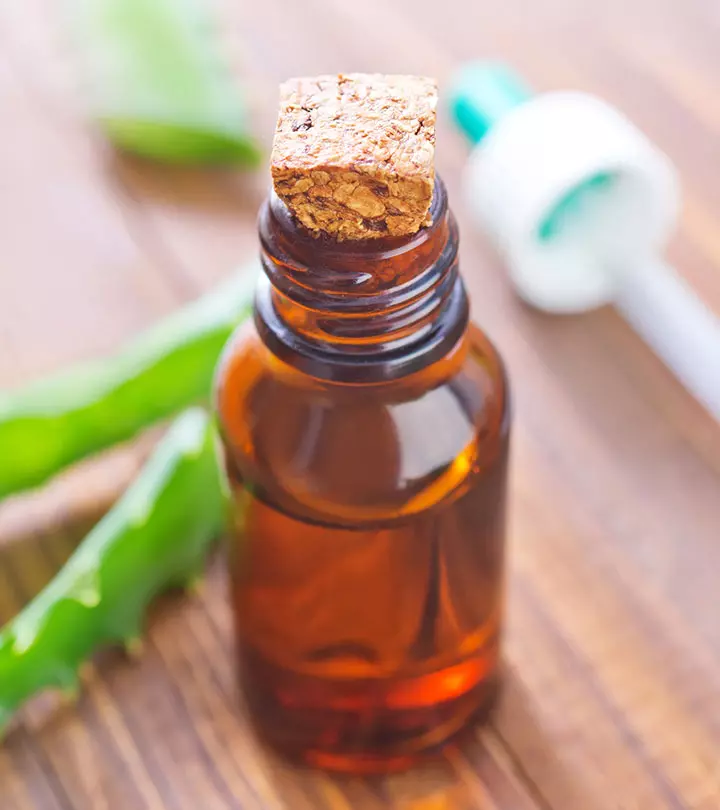
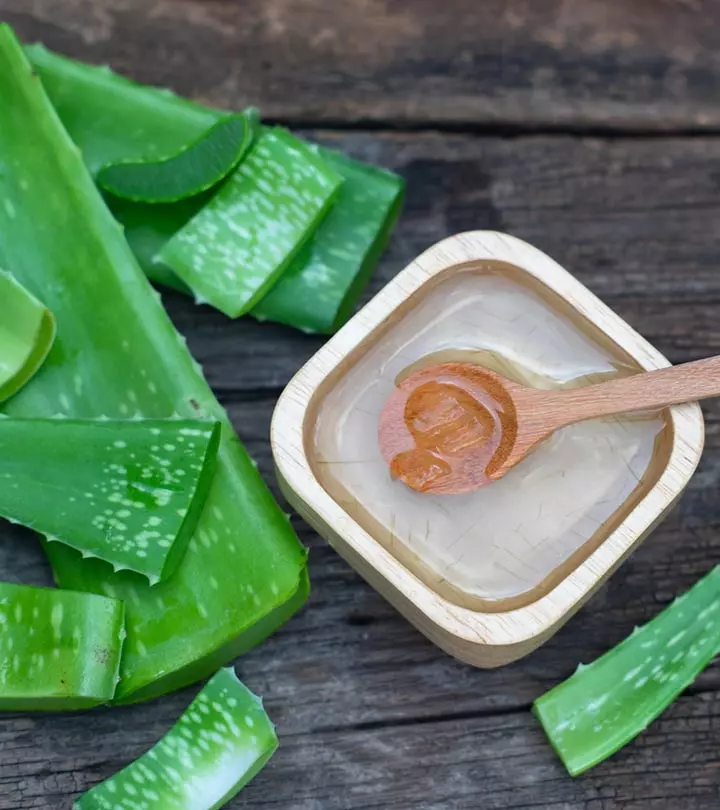
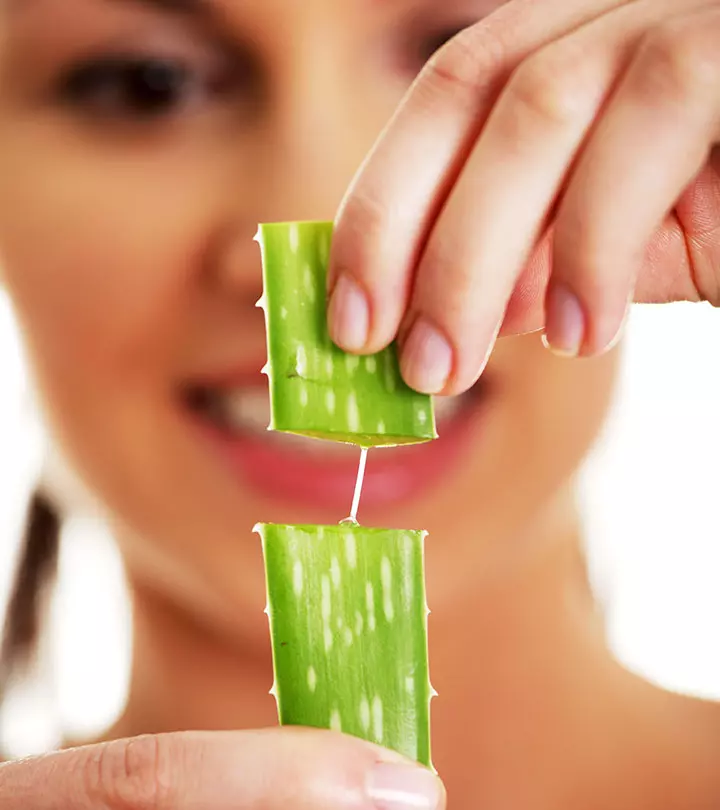
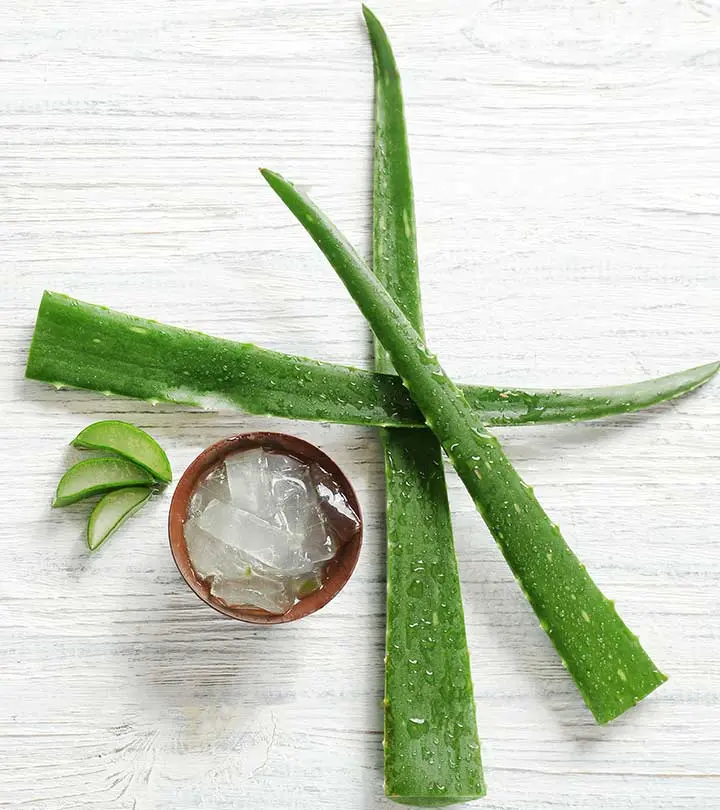

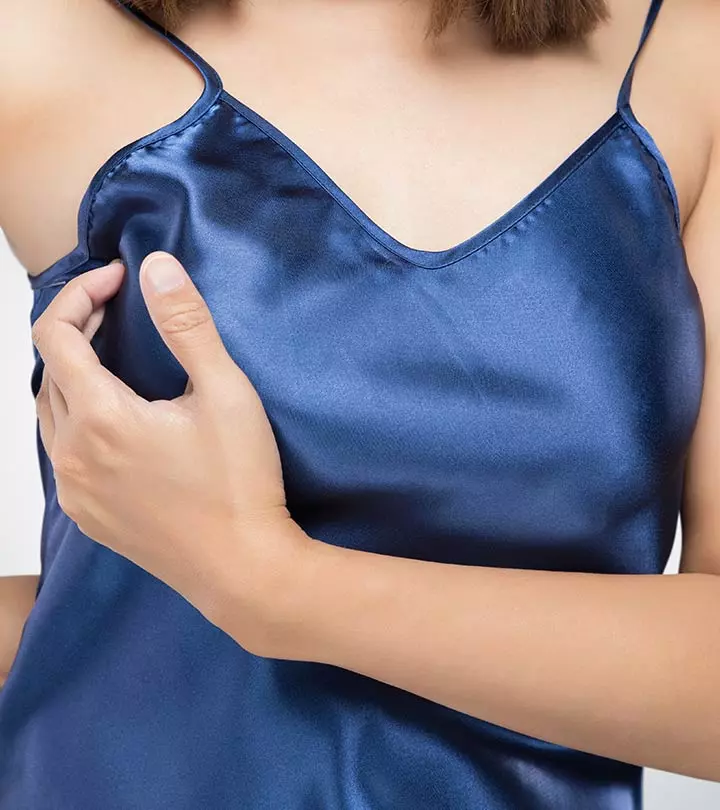
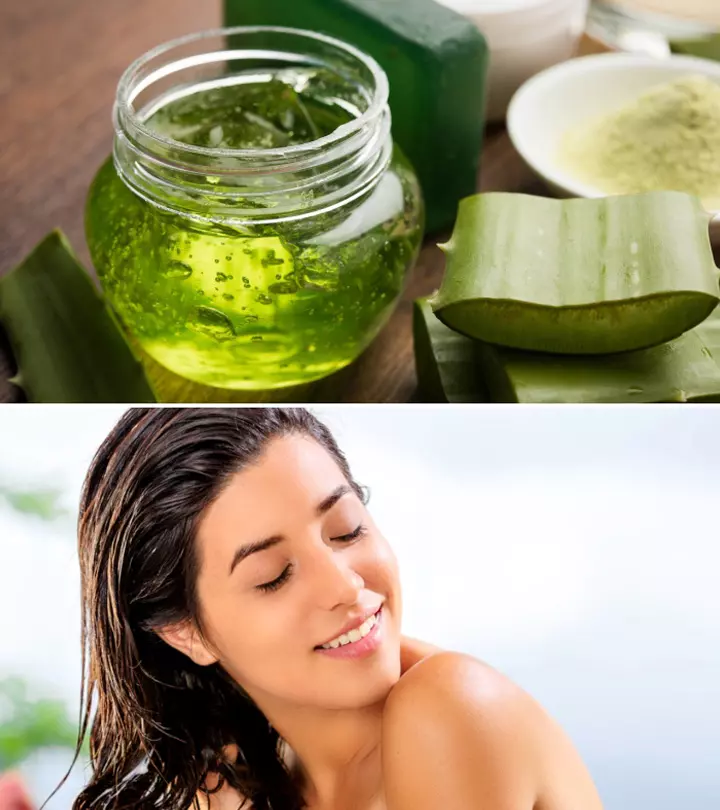
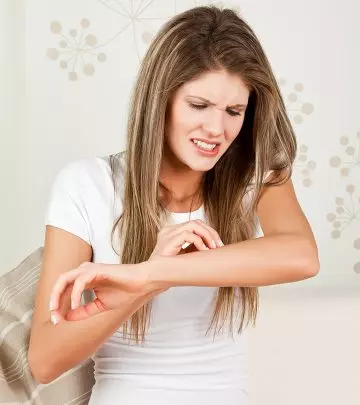
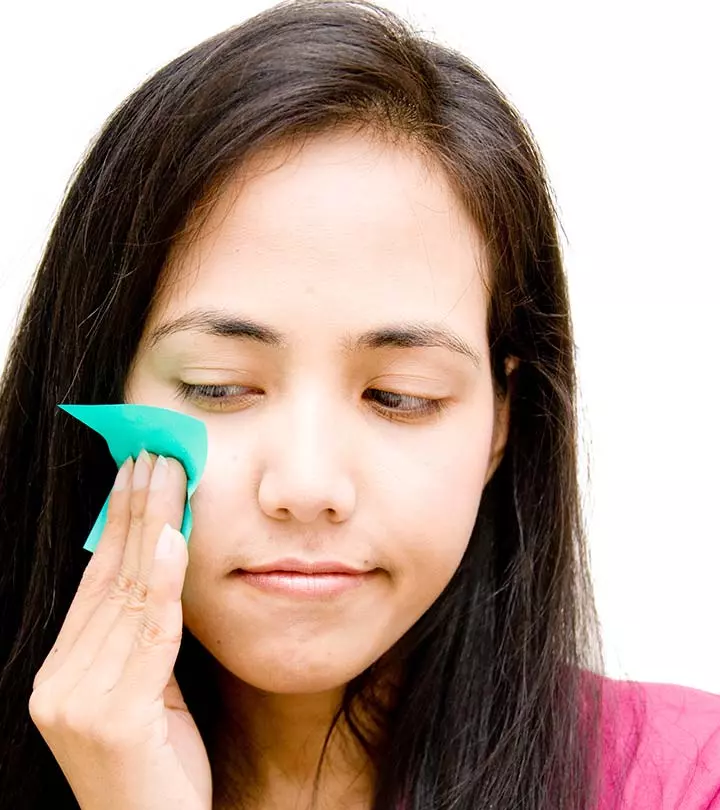

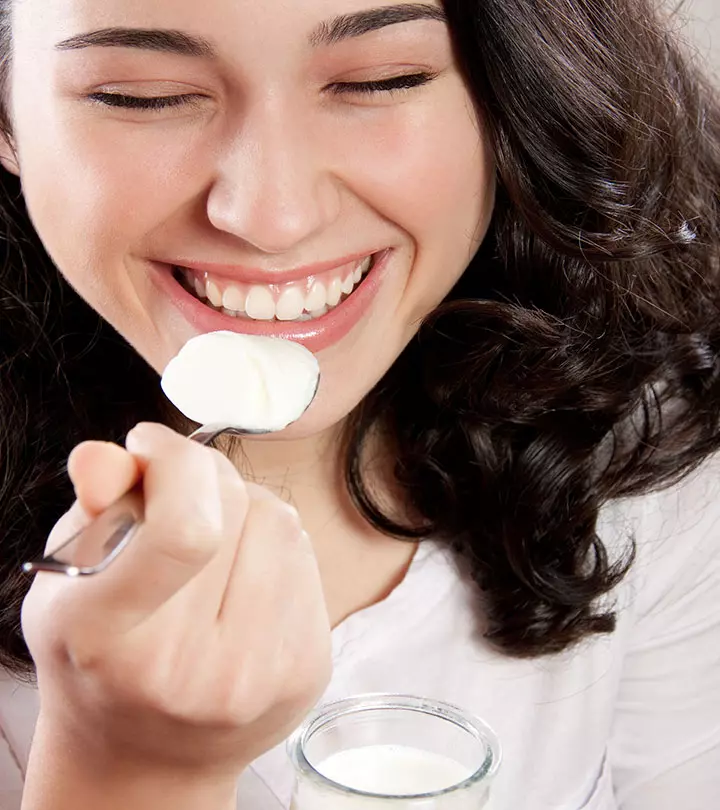
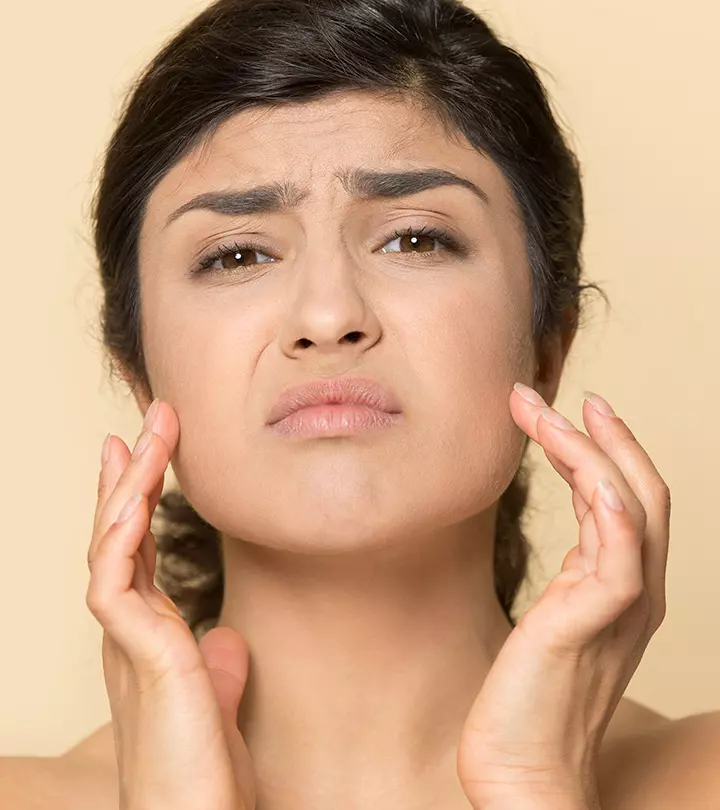
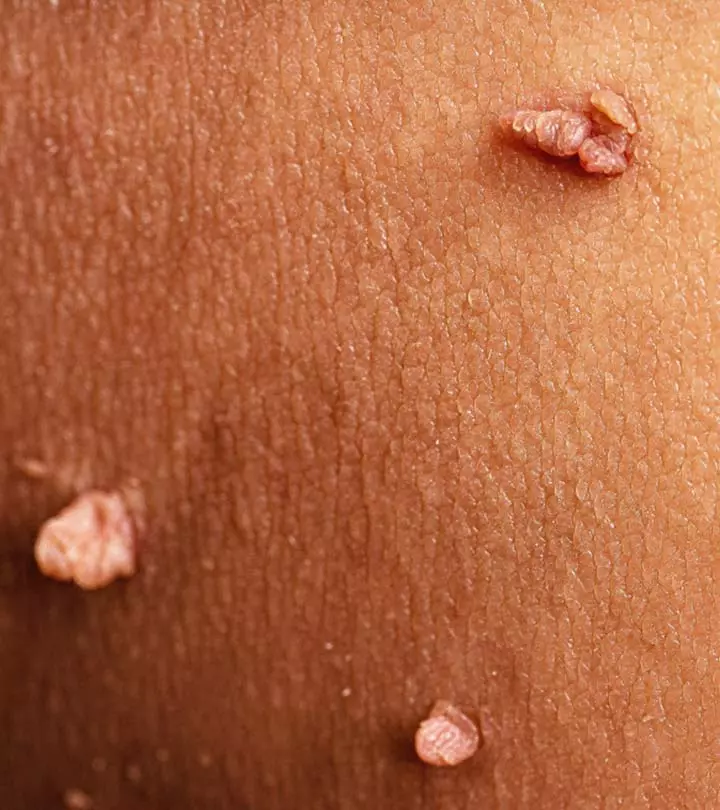
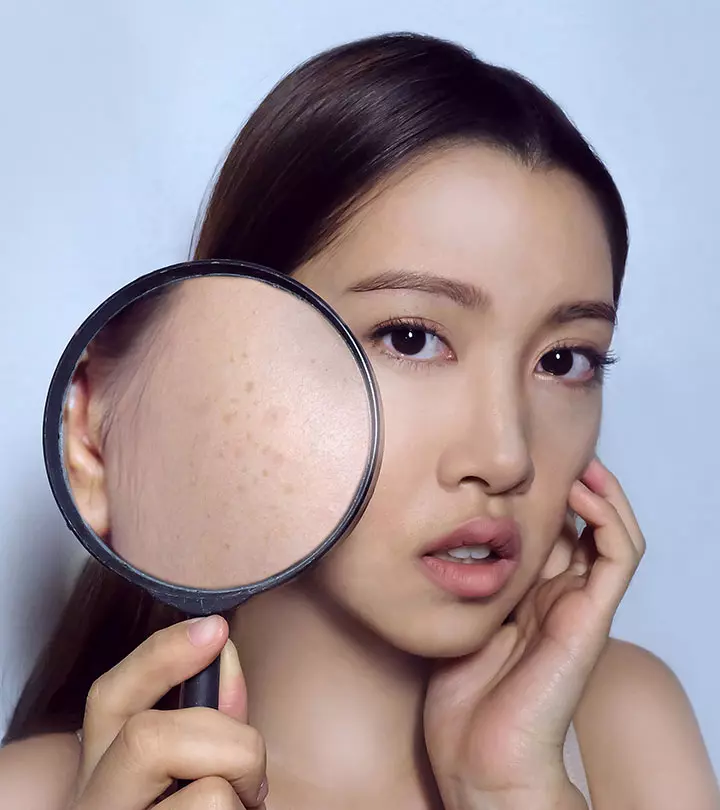

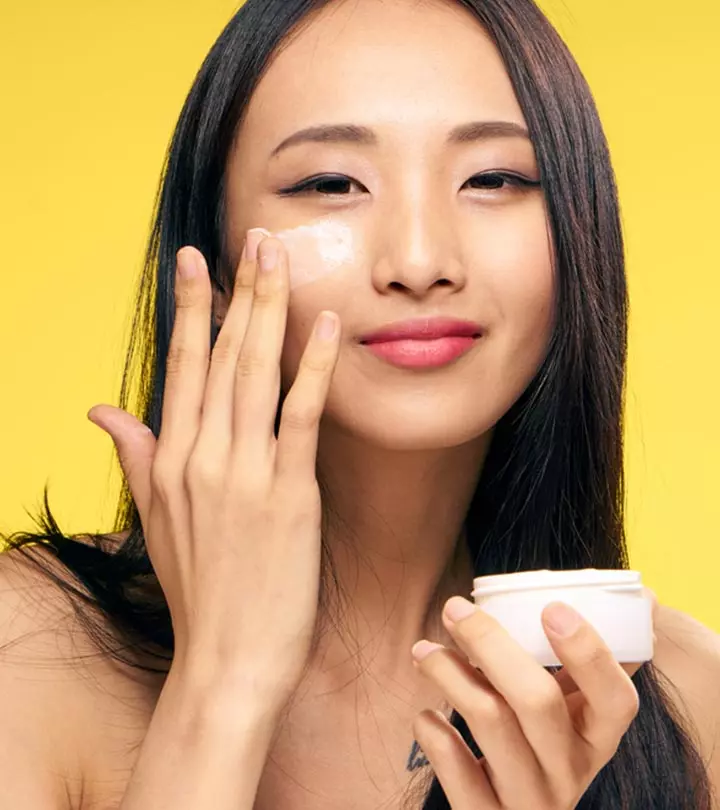

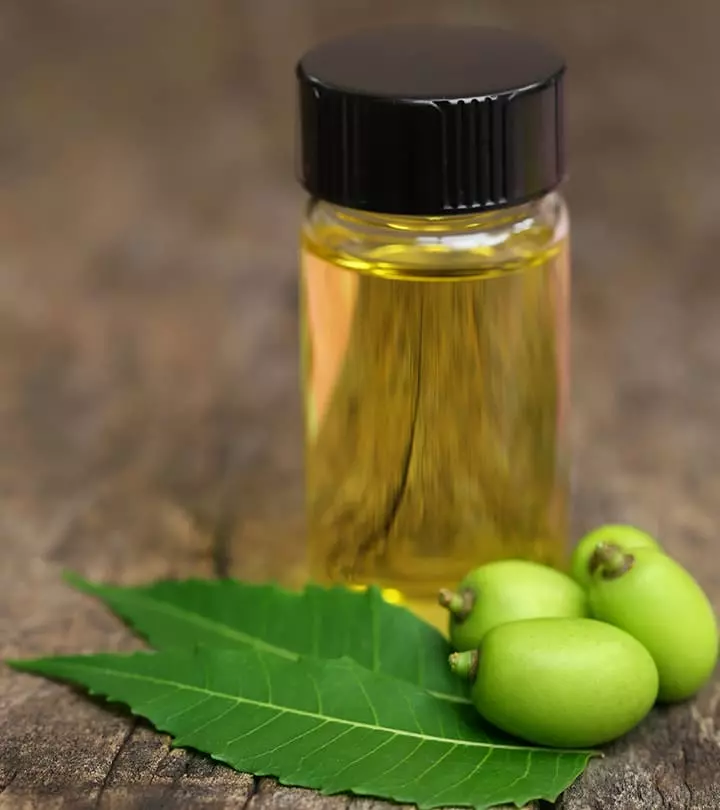
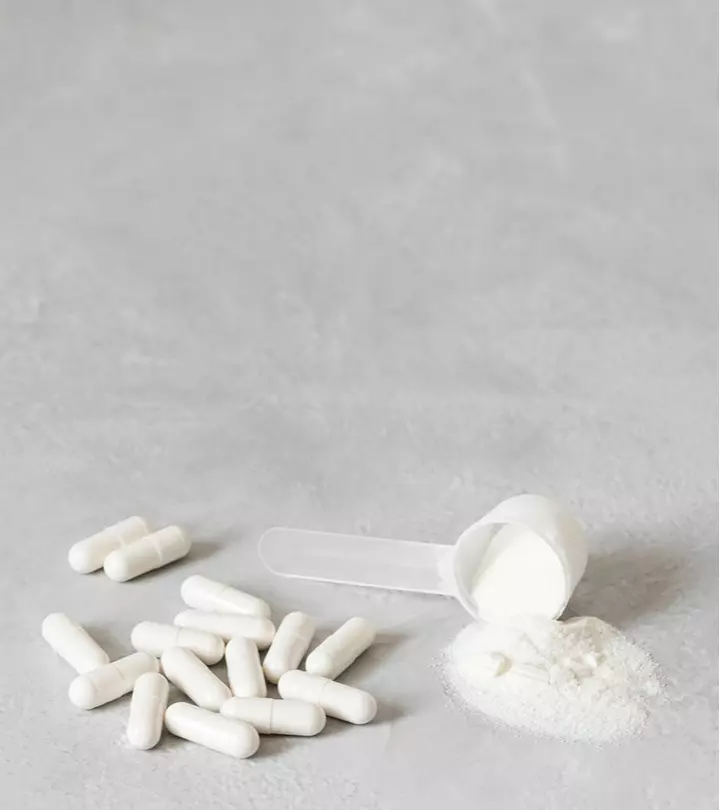
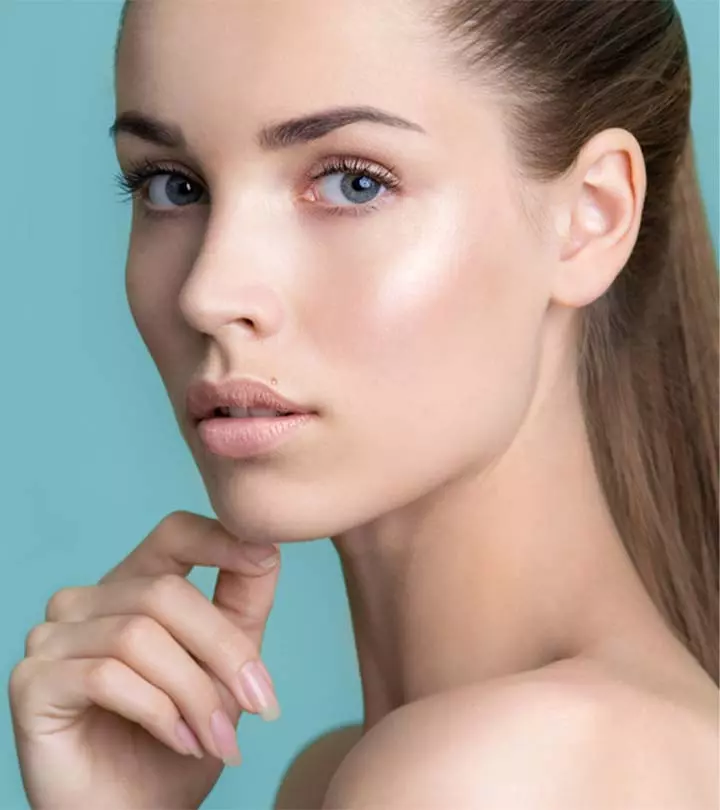
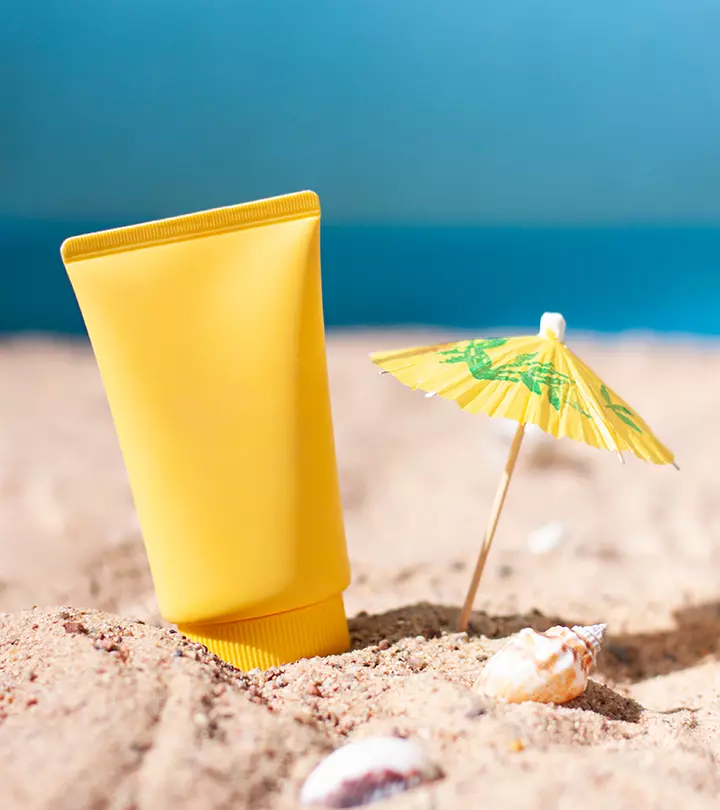
Community Experiences
Join the conversation and become a part of our empowering community! Share your stories, experiences, and insights to connect with other beauty, lifestyle, and health enthusiasts.